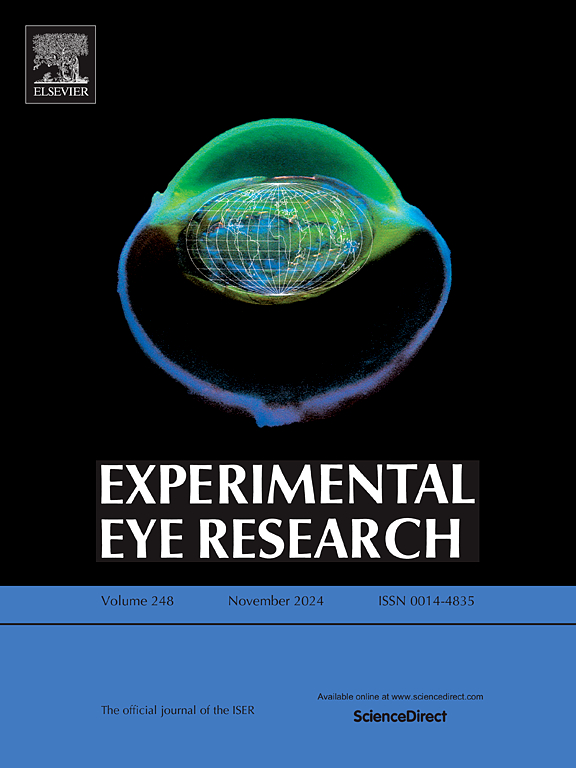Association between gut microbiota dysbiosis and age-related macular degeneration progression: A bioinformatics approach
IF 2.7
2区 医学
Q1 OPHTHALMOLOGY
引用次数: 0
Abstract
Gut microbiota dysbiosis has been linked to the progression of age-related macular degeneration, though the underlying molecular mechanisms remain unclear. This study is the first to systematically link gutMGene-derived genes to AMD pathogenesis using a multi-algorithm machine learning approach. Using the gutMGene database, we identified gut microbiota-related genes and analyzed the GSE29801 dataset for differential expression. Our enrichment analysis revealed unique insights into the involvement of gut microbiota-related genes in inflammatory, immune response, and metabolic pathways in age-related macular degeneration. Machine learning algorithms (LASSO, Random Forest, XGBoost) identified five consistent biomarker genes: CXCL10, FADS3, GHRL, APOE, and VEGFA. A nomogram was developed to predict AMD risk, showing moderate-to-high predictive accuracy with area under the curve of 0.719 (GSE29801) and 0.933 (GSE99248). Gene set variation analysis indicated upregulation of inflammatory and immune pathways and downregulation of lipid metabolism pathways in age-related macular degeneration. Single-gene set enrichment analysis further underscored the roles of diagnostic genes in immune response and metabolic regulation. This study contributes novel evidence that gut microbiota dysbiosis influences AMD progression through systemic inflammatory and metabolic pathways, and highlights potential therapeutic targets.
肠道菌群失调与年龄相关性黄斑变性进展之间的关系:生物信息学方法。
肠道菌群失调与年龄相关性黄斑变性的进展有关,尽管其潜在的分子机制尚不清楚。本研究首次使用多算法机器学习方法系统地将gutmgene衍生基因与AMD发病机制联系起来。利用gutMGene数据库,我们鉴定了肠道微生物群相关基因,并分析了GSE29801数据集的差异表达。我们的富集分析揭示了肠道微生物群相关基因参与炎症、免疫反应和年龄相关性黄斑变性代谢途径的独特见解。机器学习算法(LASSO, Random Forest, XGBoost)确定了五个一致的生物标记基因:CXCL10, FADS3, GHRL, APOE和VEGFA。建立预测AMD风险的nomogram,预测准确率中高,曲线下面积分别为0.719 (GSE29801)和0.933 (GSE99248)。基因组变异分析表明,在年龄相关性黄斑变性中,炎症和免疫途径上调,脂质代谢途径下调。单基因组富集分析进一步强调了诊断基因在免疫应答和代谢调节中的作用。该研究提供了新的证据,表明肠道菌群失调通过全身炎症和代谢途径影响AMD的进展,并强调了潜在的治疗靶点。
本文章由计算机程序翻译,如有差异,请以英文原文为准。
求助全文
约1分钟内获得全文
求助全文
来源期刊

Experimental eye research
医学-眼科学
CiteScore
6.80
自引率
5.90%
发文量
323
审稿时长
66 days
期刊介绍:
The primary goal of Experimental Eye Research is to publish original research papers on all aspects of experimental biology of the eye and ocular tissues that seek to define the mechanisms of normal function and/or disease. Studies of ocular tissues that encompass the disciplines of cell biology, developmental biology, genetics, molecular biology, physiology, biochemistry, biophysics, immunology or microbiology are most welcomed. Manuscripts that are purely clinical or in a surgical area of ophthalmology are not appropriate for submission to Experimental Eye Research and if received will be returned without review.
 求助内容:
求助内容: 应助结果提醒方式:
应助结果提醒方式:


